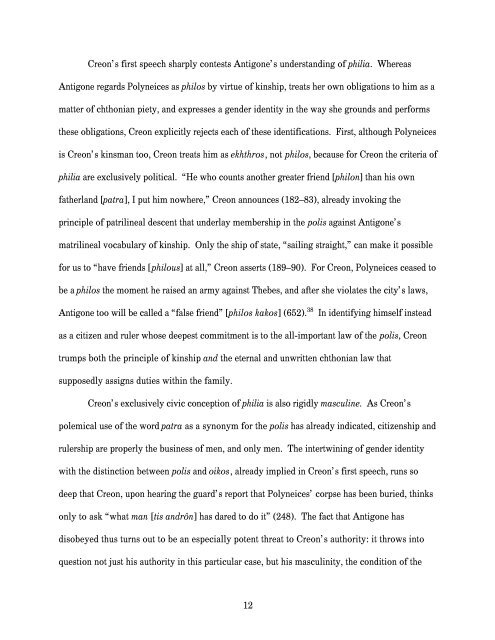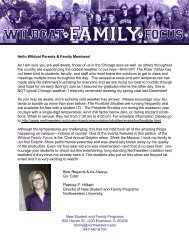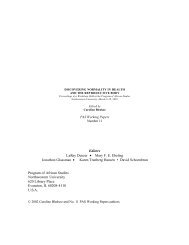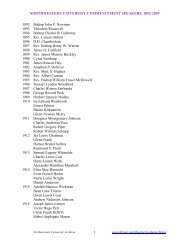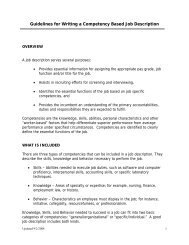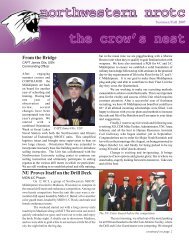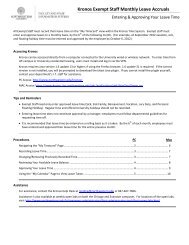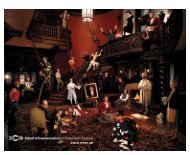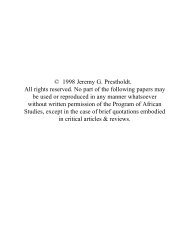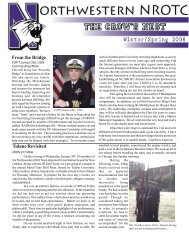TRAGIC RECOGNITION: ACTION AND IDENTITY IN ANTIGONE ...
TRAGIC RECOGNITION: ACTION AND IDENTITY IN ANTIGONE ...
TRAGIC RECOGNITION: ACTION AND IDENTITY IN ANTIGONE ...
Create successful ePaper yourself
Turn your PDF publications into a flip-book with our unique Google optimized e-Paper software.
Creon’s first speech sharply contests Antigone’s understanding of philia. Whereas<br />
Antigone regards Polyneices as philos by virtue of kinship, treats her own obligations to him as a<br />
matter of chthonian piety, and expresses a gender identity in the way she grounds and performs<br />
these obligations, Creon explicitly rejects each of these identifications. First, although Polyneices<br />
is Creon’s kinsman too, Creon treats him as ekhthros, not philos, because for Creon the criteria of<br />
philia are exclusively political. “He who counts another greater friend [philon] than his own<br />
fatherland [patra], I put him nowhere,” Creon announces (182–83), already invoking the<br />
principle of patrilineal descent that underlay membership in the polis against Antigone’s<br />
matrilineal vocabulary of kinship. Only the ship of state, “sailing straight,” can make it possible<br />
for us to “have friends [philous] at all,” Creon asserts (189–90). For Creon, Polyneices ceased to<br />
be a philos the moment he raised an army against Thebes, and after she violates the city’s laws,<br />
Antigone too will be called a “false friend” [philos kakos] (652). 38 In identifying himself instead<br />
as a citizen and ruler whose deepest commitment is to the all-important law of the polis, Creon<br />
trumps both the principle of kinship and the eternal and unwritten chthonian law that<br />
supposedly assigns duties within the family.<br />
Creon’s exclusively civic conception of philia is also rigidly masculine. As Creon’s<br />
polemical use of the word patra as a synonym for the polis has already indicated, citizenship and<br />
rulership are properly the business of men, and only men. The intertwining of gender identity<br />
with the distinction between polis and oikos, already implied in Creon’s first speech, runs so<br />
deep that Creon, upon hearing the guard’s report that Polyneices’ corpse has been buried, thinks<br />
only to ask “what man [tis andrôn] has dared to do it” (248). The fact that Antigone has<br />
disobeyed thus turns out to be an especially potent threat to Creon’s authority: it throws into<br />
question not just his authority in this particular case, but his masculinity, the condition of the<br />
12


